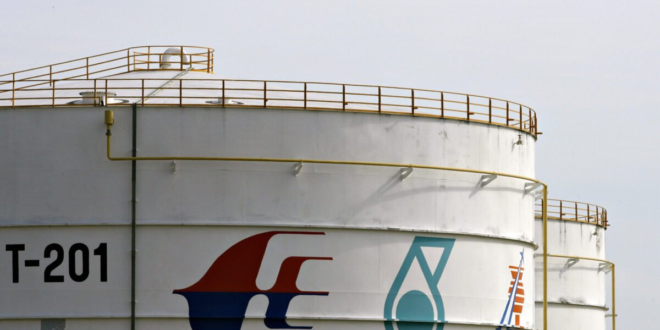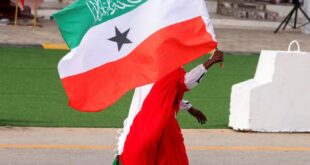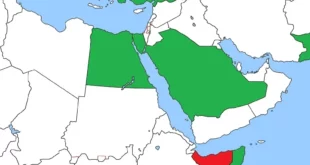Sudan’s Transitional Government has been accused of illegally expropriating the assets of Malaysia’s national oil company, Petronas, which could trigger legal proceedings against Khartoum in the International Court of Arbitration.
Petronas is a multi-billion-dollar company, ranked amongst the largest corporations in the world with more than 20 years of successful business cooperation in Sudan. It is seeking an amicable resolution following the seizure of its assets by Sudan’s part-civilian, part-military government headed by Prime Minister Abdalla Hamdok.
The dispute centres on land purchased by Petronas during the era of President Omar Al-Bashir for the construction of its headquarters, offices, and residences to house its expatriate staff. Details of the company’s complaint against the Sudanese government seen by MEMO indicate that once the land was acquired it was registered under the name of Nada Properties Company Limited (NPCL), a subsidiary of the Malaysian corporation in Sudan.
An anti-corruption committee installed by the Transitional Government following the ouster of Al-Bashir in 2019, however, maintains that the land was purchased through unlawful means and bribery. The committee was set up to recover the country’s assets that were sold during Al-Bashir’s administration.
To date, no information is said to have been shared with the Malaysian authorities with regard to the allegations of the former president’s corrupt activities, including some in Malaysia. Nevertheless, the anti-corruption committee is reported to have transferred the ownership of NPCL unlawfully to the Ministry of Finance, thus depriving Petronas of its rightful ownership of the company. Offices belonging to the Malaysian subsidiary in Sudan have also been seized by the Sudanese authorities.
In its appeal to the Transitional Government, Petronas objected strongly to what it called the “unlawful expropriation of its property” and criticised the anti-corruption committee for making “baseless and unjustified allegations”. Petronas reiterated that its property was purchased lawfully and that there was no ground for the illegal seizure of its land.
The company insists that it is seeking an “amicable solution”. A letter sent to the government in April gave Khartoum a 90-day reconciliation period for both parties to negotiate and find such a solution. The letter offered a dispute resolution mechanism provided for in the Promotion and Protection of Investments Agreement signed between the Sudanese and Malaysian governments.
Under the agreement, companies have legal recourse through international arbitration proceedings pursuant to Article 7(1) for the Promotion and Protection of Investments. Petronas maintained that settlement of the issue in the court of law would be taken only as the last resort in order to preserve the good bilateral relations between the two countries.
A second letter was sent to the Transitional Government in July, giving it a further 30 days to negotiate and find an amicable solution. Pointing out that it is now running out of patience with Khartoum, Petronas has said that it may be left with no option but to pursue a solution through legal channels. Sources close to Petronas have informed MEMO that the Malaysian firm is preparing for a legal battle.
The row with Petronas appears to be less about corruption and more to do with the new geopolitical realities. Last October, Sudan’s Transitional Government agreed to normalise ties with Israel in exchange for its removal from the US list of “State Sponsors of Terrorism”. The removal of Sudan from the list paved the way for Khartoum to attract investors from the West. While new foreign investors have been welcomed, firms that invested billions of dollars during Al-Bashir’s time in office have been sidelined or, worse, snared by the anti-corruption drive. For Petronas, which has been instrumental in assisting Sudan to become an oil-exporting country, this has been an exceptionally bitter experience.
The Malaysian corporation is one of several international firms targeted by the Transitional Government following the ouster of Al-Bashir. Khartoum has also reneged on major contracts with Turkish, Qatari, and Russian companies. It’s a split that is said to have helped accelerate Sudan’s realignment with the West. Over the past year, the Transitional Government has not only been removed from the terrorist list but is also on course for relief from more than $50 billion in debt.
In what seems to be a carefully crafted message to Washington that Khartoum has turned its back on its former allies, the Sudanese authorities last week took control of lucrative assets which they claimed provided backing for Hamas in occupied Palestine. Transitional Government officials said that the takeover of at least a dozen companies was linked to the Palestinian resistance group. Hamas, however, has denied having any assets or investments in Sudan, throwing further doubt on the objectives of the government’s so-called anti-corruption drive.
Petronas meanwhile has warned that it could pull its investments out from Sudan altogether. It said that although it may incur a loss if it withdraws from Sudan without receiving any compensation for its investments, Khartoum will suffer a bigger loss due to the reputational damage caused by its failure to protect and safeguard foreign investments in the country.
 Eurasia Press & News
Eurasia Press & News



